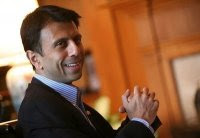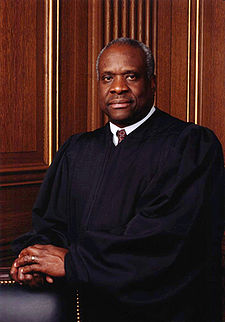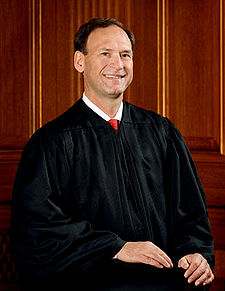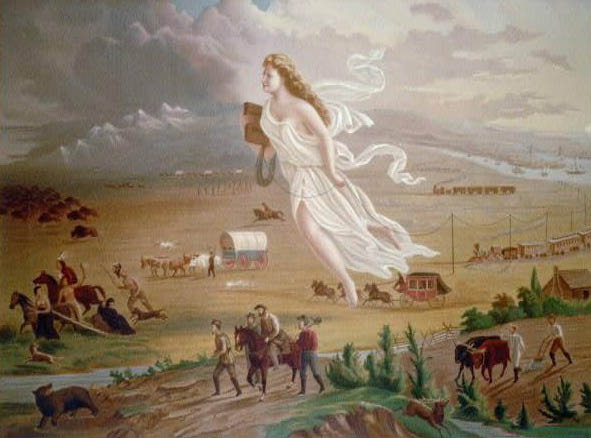
Our unalterable resolution would be to be free. They have attempted to subdue us by force, but God be praised! in vain. Their arts may be more dangerous than their arms. Let us then renounce all treaty with them upon any score but that of total separation, and under God trust our cause to our swords. Samuel Adams, letter to James Warren, April 16, 1776
The liberties of our country, the freedom of our civil constitution, are worth defending against all hazards: And it is our duty to defend them against all attacks. Samuel Adams
"Mr. Adams was a Christian. His mind was early imbued with piety, as well as cultivated by science. He early approached the table of the Lord Jesus, and the purity of his life witnessed the sincerity of his profession. On the Christian Sabbath, he constantly went to the temple, and the morning and evening devotions in his family proved, that his religion attended him in his seasons of retirement from the world. The last production of his pen was in favor of Christian truth. He died in the faith of the Gospel."
William Allen, An American Biographical and Historical Dictionary, Containing an Account of the Lives, Characters, and Writings of the Most Eminent Persons in North America from Its First Discovery to the Present Time, and a Summary of the History of the Several Colonies and of the United States (Cambridge: William Hilliard, 1809), pp. 3-6.]
The rights of the colonists as Christians...may be best understood by reading and carefully studying the institutes of the Great Law Giver and Head of the Christian Church, which are to be found clearly written and promulgated in the New Testament. Samuel Adams
Samuel Adams descended from a family that was among the first to settle in America. In the year 1736, he attended Harvard University, graduating in 1740, distinguished for classical and scientific achievements. He continued on to obtain a master's, already showing a prophetic interest in America's liberty should she be treated unfairly by the mother country.
Upon graduation, he opened a business out of respect for his mother's wishes; but his heart was never sold to mercantile pursuits, and he failed at the business endeavor. Political rights and philosophical theory overtook his thoughts and activities to the point where he neglected many worldly concerns. He was knowledgeable, to be sure, in areas that benefited us as a liberated nation; but to him personally, time and energy spent to achieve his extensive comprehension proved to show him some material harm. It was said that he ate little, drank little, slept little, and thought much. He did not care about making money and did not care to accumulate property. Of his inheritance, he lent half to a friend who never repaid him. He often held a political office without pay or very scant pay.
When he saw England tax America's businesses, he asked, "If our trade may be taxed, why not our lands? Why not the produce of our lands, and every thing we possess, or use? This we conceive annihilates our charter rights to govern and tax ourselves." His boldness in denouncing unjust acts of the British ministry branded him as a leader of the patriotic party. He later became known as the "Father of the Revolution," admitting "that the independence of the United States upon Great Britain had been the first wish of his heart seven years before the war."
In 1765 he was elected a representative to the general court of Massachusetts; and serving in that body until 1774, his truth was heard as he served on almost every committee and assisted in writing nearly every report to counteract unjust plans of the British administration. His passion for political exercises continued to consume his time while his finances suffered. When England learned that he was destitute, Governor Hutchinson was asked to help him out with a high-paying office serving the Crown's government, which would be against the liberties of the colonists. However, Hutchinson knew Adams very well and told England that "Such is the obstinacy and inflexible disposition of the man, that he never can be conciliated by any office or gift whatever."
Samuel Adams wrote under several pen names to educate the masses about their God-given rights. If a bad law is passed, it is the people's responsibility to recognize it as a bad law and to fight against it. And, indeed, it is fortunate for us that our ancestors understood their own rights, and continued with courage to assert them.
It wasn't long before Adams was messaged by General Gage through Colonel Fenton that if he did not cease opposition to the royal government, he would be put on trial for treason. However, if he did change his political conduct, he could enjoy prestige and wealth. To this proposal, Adams replied; "Go tell Governor Gage, that my peace has long since been made with the King of kings, and that it is the advice of Samuel Adams to him, no longer to insult the feelings of an already exasperated people." Angered and red-faced at the waghalters, Gage proclaimed, "I do hereby in his majesty's name, offer and promise his most gracious pardon to all persons, who shall forthwith lay down their arms, and return to the duties of peaceable subjects: excepting only from the benefits of such pardon, Samuel Adams, and John Hancock, whose offenses are of too flagitious a nature to admit of any other consideration but that of condign punishment."
Nothing is more essential to the establishment of manners in a State than that all persons employed in places of power and trust must be men of unexceptionable characters.
Samuel Adams, letter to James Warren, 1775
Adams attended the Continental Congress from 1774 until 1781. Benjamin Rush described, "He was near sixty years of age when he took his seat in Congress, but possessed all the vigor of mind of a young man of five and twenty.....He considered national happiness and the public patronage of religion as inseparably connected; and so great was his regard for public worship, as the means of promoting religion, that he constantly attended divine service in the German church in Yorktown while the Congress sat there, when there was no service in their chapel, although he was ignorant of the German language. His morals were irreproachable, and even ambition and avarice, the usual vices of politicians, seemed to have no place in his breast. He seldom spoke in Congress, but was active in preparing and doing business out of doors.....His abilities were considerable, and his knowledge extensive and correct upon Revolutionary subjects, and both friends and enemies agree in viewing him as one of the most active instruments of the American Revolution."
In April of 1775, between the First and Second Continental Congresses, he and John Hancock narrowly escaped the British, having just enough time to get away after being warned by Paul Revere and William Dawes. Between 1781 and 1788, Adams was part of the Massachusetts State Senate.
The liberties of our country, the freedom of our civil constitution, are worth defending against all hazards: And it is our duty to defend them against all attacks. Samuel Adams
"Mr. Adams was a Christian. His mind was early imbued with piety, as well as cultivated by science. He early approached the table of the Lord Jesus, and the purity of his life witnessed the sincerity of his profession. On the Christian Sabbath, he constantly went to the temple, and the morning and evening devotions in his family proved, that his religion attended him in his seasons of retirement from the world. The last production of his pen was in favor of Christian truth. He died in the faith of the Gospel."
William Allen, An American Biographical and Historical Dictionary, Containing an Account of the Lives, Characters, and Writings of the Most Eminent Persons in North America from Its First Discovery to the Present Time, and a Summary of the History of the Several Colonies and of the United States (Cambridge: William Hilliard, 1809), pp. 3-6.]
The rights of the colonists as Christians...may be best understood by reading and carefully studying the institutes of the Great Law Giver and Head of the Christian Church, which are to be found clearly written and promulgated in the New Testament. Samuel Adams
Samuel Adams descended from a family that was among the first to settle in America. In the year 1736, he attended Harvard University, graduating in 1740, distinguished for classical and scientific achievements. He continued on to obtain a master's, already showing a prophetic interest in America's liberty should she be treated unfairly by the mother country.
Upon graduation, he opened a business out of respect for his mother's wishes; but his heart was never sold to mercantile pursuits, and he failed at the business endeavor. Political rights and philosophical theory overtook his thoughts and activities to the point where he neglected many worldly concerns. He was knowledgeable, to be sure, in areas that benefited us as a liberated nation; but to him personally, time and energy spent to achieve his extensive comprehension proved to show him some material harm. It was said that he ate little, drank little, slept little, and thought much. He did not care about making money and did not care to accumulate property. Of his inheritance, he lent half to a friend who never repaid him. He often held a political office without pay or very scant pay.
When he saw England tax America's businesses, he asked, "If our trade may be taxed, why not our lands? Why not the produce of our lands, and every thing we possess, or use? This we conceive annihilates our charter rights to govern and tax ourselves." His boldness in denouncing unjust acts of the British ministry branded him as a leader of the patriotic party. He later became known as the "Father of the Revolution," admitting "that the independence of the United States upon Great Britain had been the first wish of his heart seven years before the war."
In 1765 he was elected a representative to the general court of Massachusetts; and serving in that body until 1774, his truth was heard as he served on almost every committee and assisted in writing nearly every report to counteract unjust plans of the British administration. His passion for political exercises continued to consume his time while his finances suffered. When England learned that he was destitute, Governor Hutchinson was asked to help him out with a high-paying office serving the Crown's government, which would be against the liberties of the colonists. However, Hutchinson knew Adams very well and told England that "Such is the obstinacy and inflexible disposition of the man, that he never can be conciliated by any office or gift whatever."
Samuel Adams wrote under several pen names to educate the masses about their God-given rights. If a bad law is passed, it is the people's responsibility to recognize it as a bad law and to fight against it. And, indeed, it is fortunate for us that our ancestors understood their own rights, and continued with courage to assert them.
It wasn't long before Adams was messaged by General Gage through Colonel Fenton that if he did not cease opposition to the royal government, he would be put on trial for treason. However, if he did change his political conduct, he could enjoy prestige and wealth. To this proposal, Adams replied; "Go tell Governor Gage, that my peace has long since been made with the King of kings, and that it is the advice of Samuel Adams to him, no longer to insult the feelings of an already exasperated people." Angered and red-faced at the waghalters, Gage proclaimed, "I do hereby in his majesty's name, offer and promise his most gracious pardon to all persons, who shall forthwith lay down their arms, and return to the duties of peaceable subjects: excepting only from the benefits of such pardon, Samuel Adams, and John Hancock, whose offenses are of too flagitious a nature to admit of any other consideration but that of condign punishment."
Nothing is more essential to the establishment of manners in a State than that all persons employed in places of power and trust must be men of unexceptionable characters.
Samuel Adams, letter to James Warren, 1775
Adams attended the Continental Congress from 1774 until 1781. Benjamin Rush described, "He was near sixty years of age when he took his seat in Congress, but possessed all the vigor of mind of a young man of five and twenty.....He considered national happiness and the public patronage of religion as inseparably connected; and so great was his regard for public worship, as the means of promoting religion, that he constantly attended divine service in the German church in Yorktown while the Congress sat there, when there was no service in their chapel, although he was ignorant of the German language. His morals were irreproachable, and even ambition and avarice, the usual vices of politicians, seemed to have no place in his breast. He seldom spoke in Congress, but was active in preparing and doing business out of doors.....His abilities were considerable, and his knowledge extensive and correct upon Revolutionary subjects, and both friends and enemies agree in viewing him as one of the most active instruments of the American Revolution."
In April of 1775, between the First and Second Continental Congresses, he and John Hancock narrowly escaped the British, having just enough time to get away after being warned by Paul Revere and William Dawes. Between 1781 and 1788, Adams was part of the Massachusetts State Senate.
Be of good courage, and he shall strengthen your heart, all ye that hope in the Lord.
Psalm 31:24
Psalm 31:24
After Congress signed the Declaration of Independence, fear settled within the hearts of many colonists. Doubts and misgivings were expressed as they considered that perhaps they were too hasty in their zeal for freedom. Adams was confident of heaven's blessings and responded to them, "The chance is desperate.........Indeed, indeed, it is desperate if this be our language. If we wear long faces, others will do so too; if we despair, let us not expect that others will hope; or that they will persevere in a contest, from which their leaders shrink. But let not such feelings, let not such language, be ours.......I should advise persisting in our struggle for liberty, though it were revealed from Heaven that nine hundred and ninety-nine were to perish, and only one of a thousand were to survive and retain his liberty! One such freeman must possess more virtue, and enjoy more happiness, than a thousand slaves; and let him propagate his like, and transmit to them what he hath so nobly preserved."
A little that a righteous man hath is better than the riches of many wicked.
Psalm 37:16
Psalm 37:16
Veterans Fight to Keep 75-yr. old Mojave Desert Memorial cross (www.donttearmedown.com)
See: Sweet Devotions
Order Godly Minds, Bold Hearts from:
Inklings Book Store, 5629 Summitview Ave, Yakima, WA 98908
p 509.965.5830
f 509.965.5846
Mon-Sat: 9-9 • Sun: 12-6 or from Amazon



























